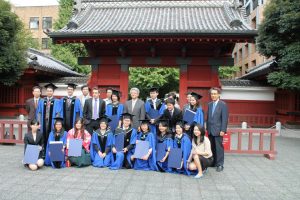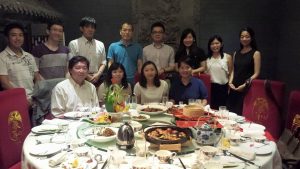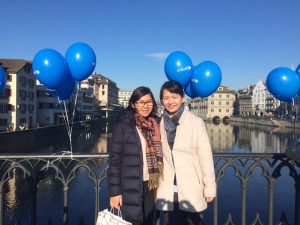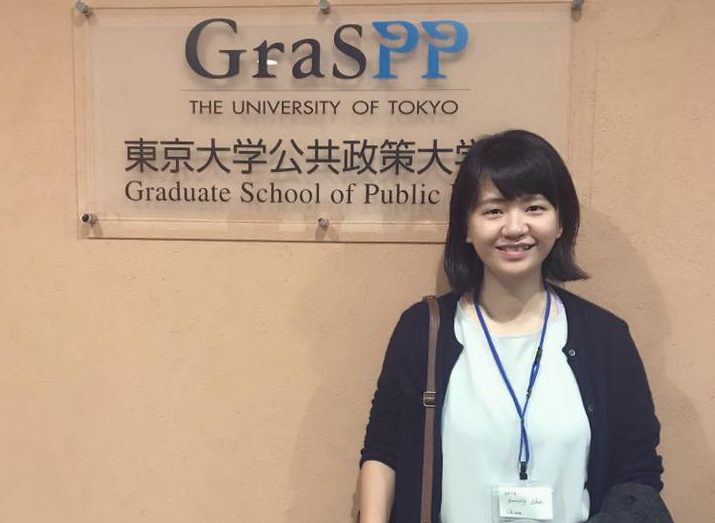What was your purpose in enrolling in GraSPP?
Before coming to GraSPP, my major was mathematics, and I worked at a consulting firm for two years. I wanted to get more knowledge in social science, then applied to several top public policy schools. I had an interview with Professor Ito Takatoshi in Shanghai, and he told me that the vision of GraSPP was to help students both academically and professionally. At that time, I realized that GraSPP was an ideal place to continue my study.
What was attractive or stimulating about GraSPP?

GraSPP graduation ceremony
The most attractive part of GraSPP is the diversity and quality of the courses. Japan’s most distinguished scholars and experienced practitioners generously share their knowledge, wisdom, and critical thinking. I always regret that two years was too short to take all the courses. But the macroeconomics course by Professor Ito, the public finance course by Professor Kanemoto, the trade negotiation course by Professor Hasegawa and Professor Oshima, and the corporate law course by Professor Kanda and Professor Osaki has always been my academic inspiration and shaped my research interest into the area of law and economics.
In your opinion, what is the advantage of studying in Japan?
First, Japan is culturally inclusive. People are humble and respectful to each other. International students can be quickly adapted to school life. Second, Japanese universities offer various opportunities like language learning, internships, scholarships, and exchange programs. In GraSPP, I took the free Japanese language class, worked as a teaching assistant for the statistic method class, and did a summer internship at the NEC business development department.
Did your career affect your school life at GraSPP?

With alumni and Campus Asia students in Beijing
After GraSPP graduation, I worked for the Ministry of Environmental Protection in Beijing for one year, then was admitted to the PhD program in development economics of the Graduate Institute, Geneva.
Studying in Europe is an entirely different experience; the rhythm of life there is much slower than in Asia. Fortunately, GraSPP has prepared me for the new challenge of collaborating with people from different academic and cultural backgrounds. Just like in Tokyo, I also enjoyed my PhD life in Geneva. I made friends all over the world and participated in high-profile conferences at the headquarters of the United Nations. My research and dissertation focused on labor law and the labor market. I received my doctoral degree in 2020.
Now, I am an economist at a public institute in China. I am working on platform economy and digital market regulation, which is a perfect combination of what I have studied: mathematical models, contract theory, and public policy. I am thrilled that what I learned from Japan and Switzerland can contribute to my country’s policy-making process.
Advice/comments for the latent students

Reunion with my classmate in Geneva
Take as many courses as you can. Keep in touch with your classmates. I met many of my GraSPP classmates in Beijing, Geneva, and Zurich when they were on business trips. The reunions are always priceless because we share similar career paths, goals, and upsets. The life-long friendship is the most valuable asset of GraSPP.



